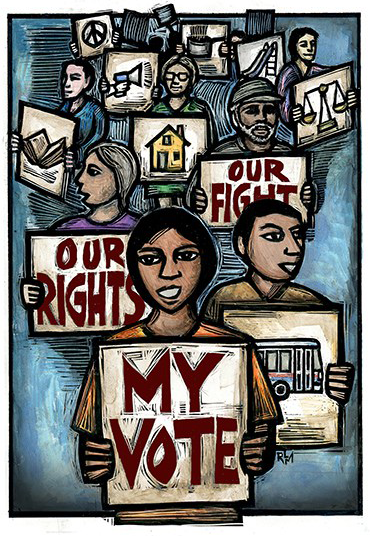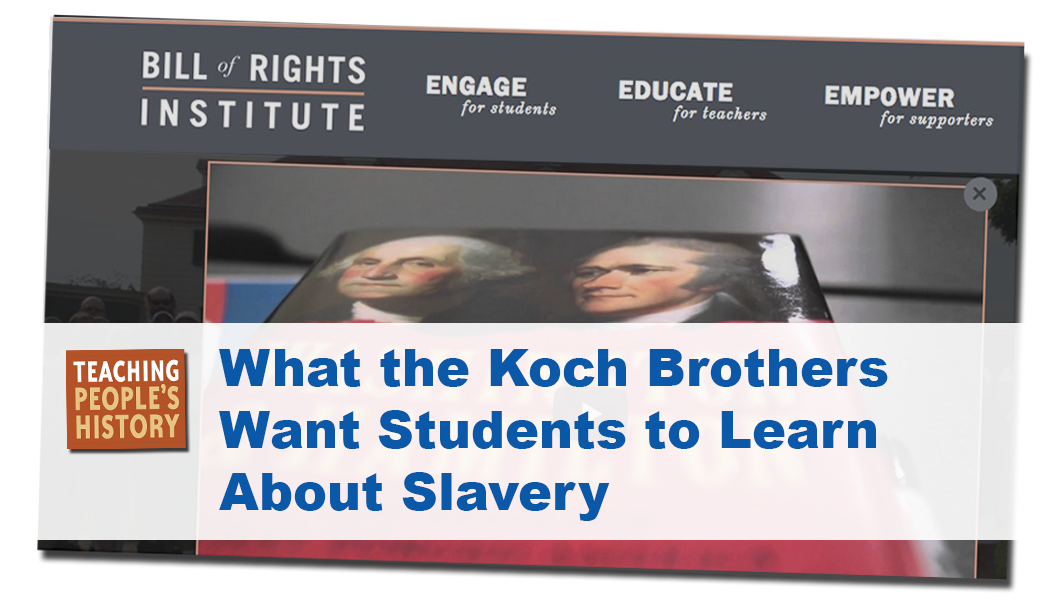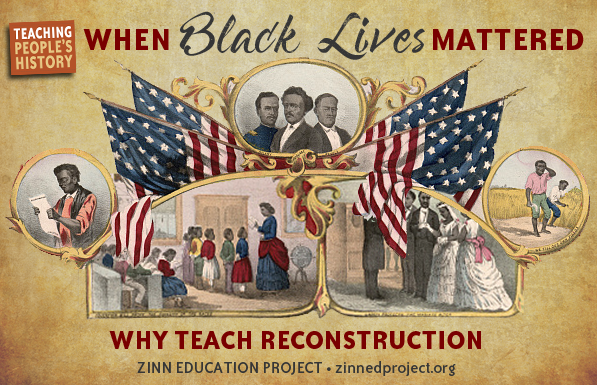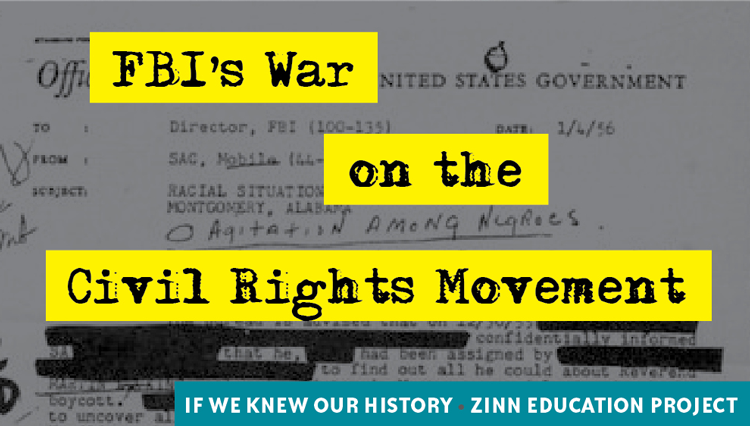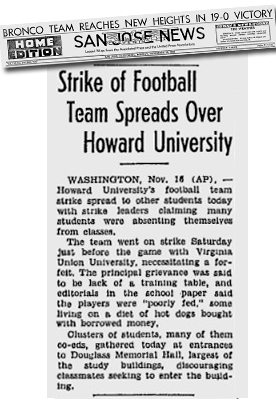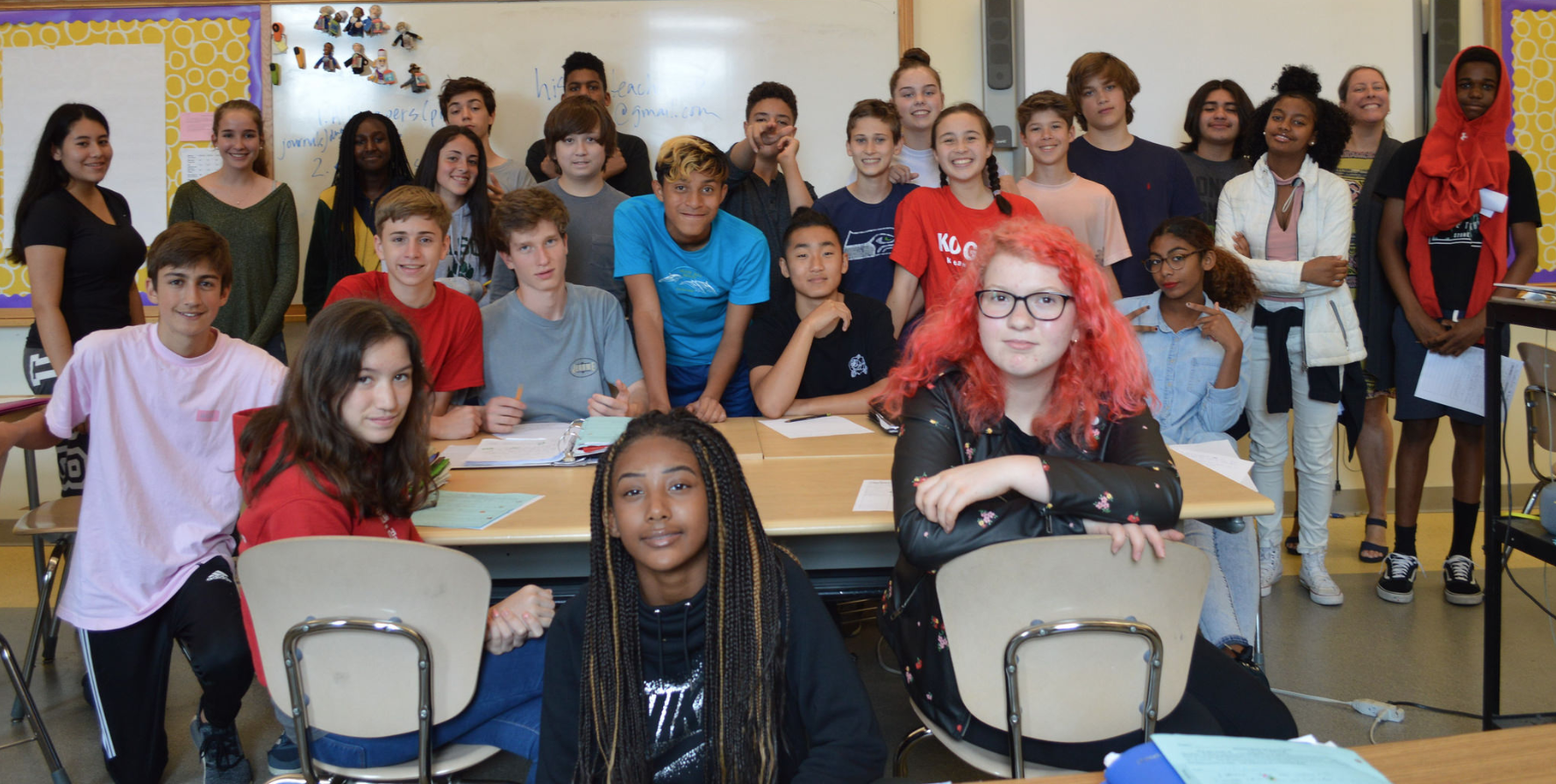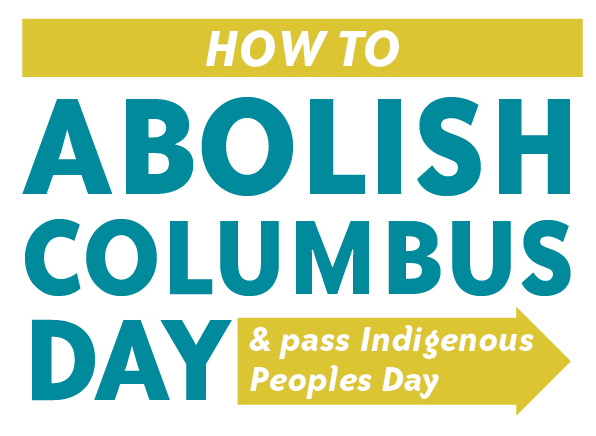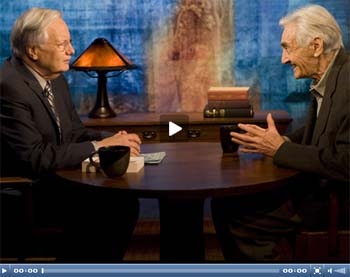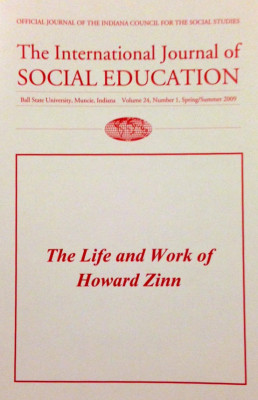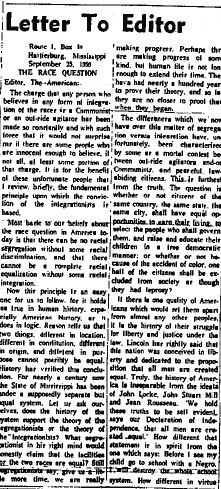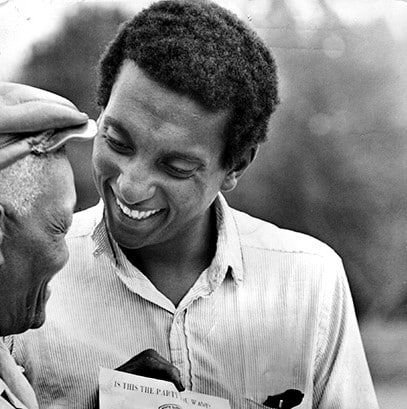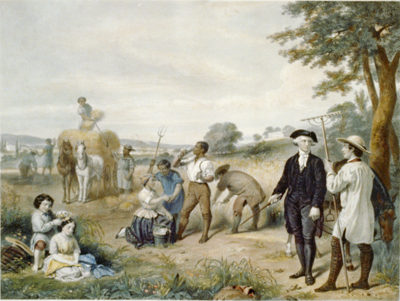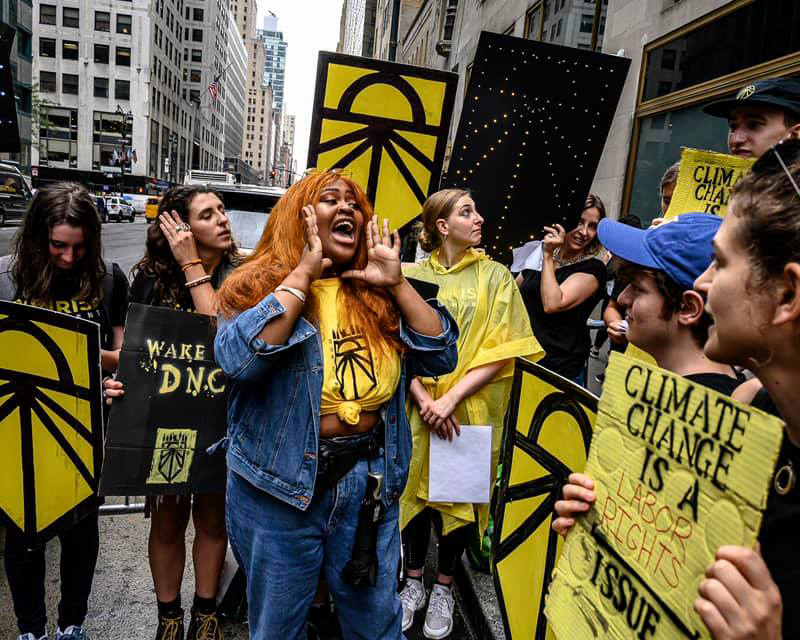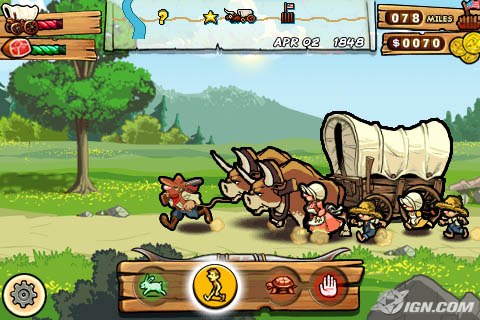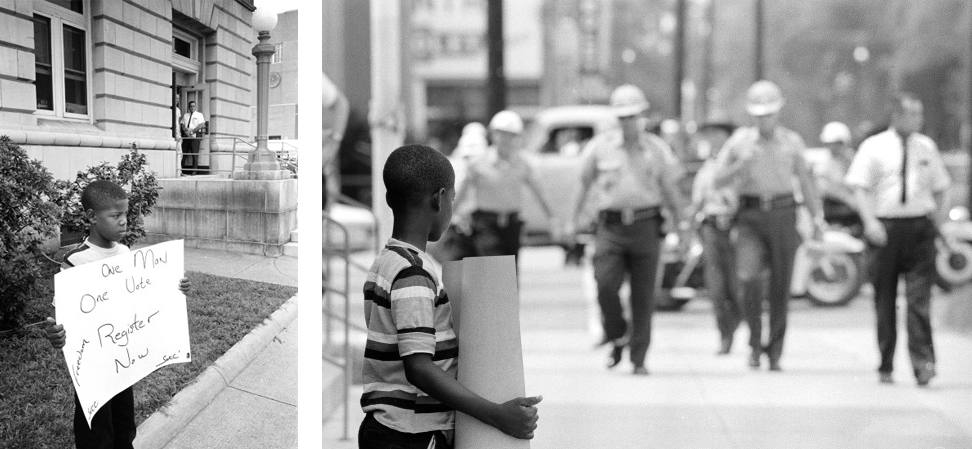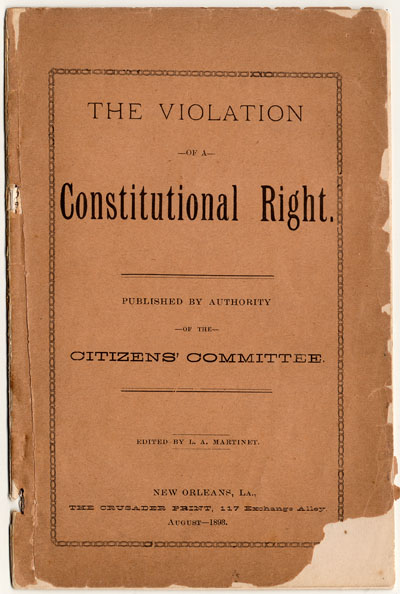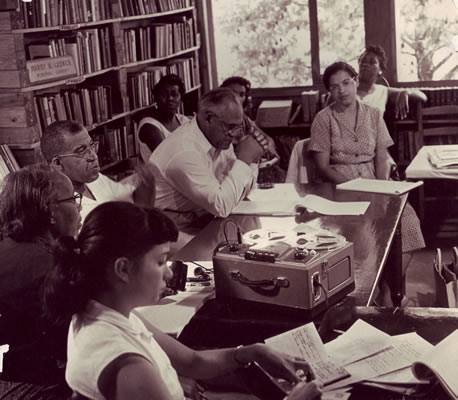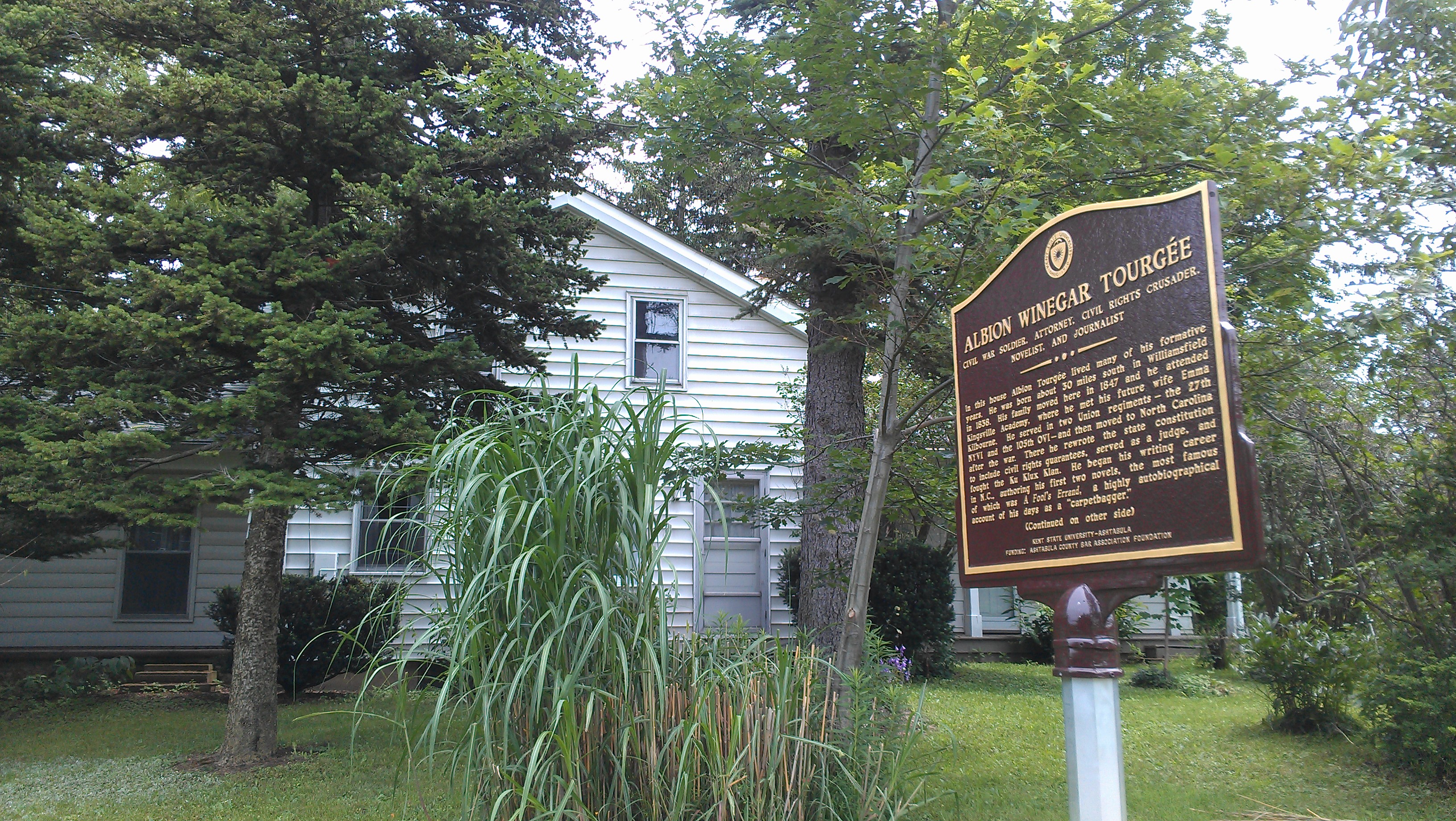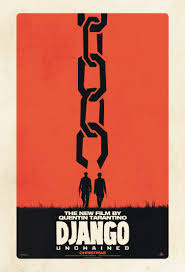Article in PDF. By Jean-Bertrand Aristide. 5 pages.
An essay on the impact of globalization, with the story of Haiti as an example.
Continue reading
Article. By Dave Zirin. 2013.
Even in football, a sport whose DNA is constructed to produce obedience and deference to authority, people can be pushed only so far before they push back.
Continue reading
Article. By Jeanne Theoharis. The Washington Post. 2015.
The radical life history of Rosa Parks, before and after the Montgomery Bus Boycott.
Continue reading
Article. By Amy Trenkle.
One of the teachers who piloted the Make Reconstruction History Visible project with her students shares the process she used.
Teaching Activity by Amy Trenkle
Continue reading
Article. By Mahtowin Munro.
Campaign guidelines from the organizer of a successful effort to abolish Columbus Day and establish Indigenous Peoples' Day in Cambridge, Mass.
Continue reading
Article. Interview of Howard Zinn by Bill Moyers. 2009.
Book excerpt of Howard Zinn on The People Speak and a range of topics in U.S. history and contemporary issues.
Continue reading
Article. By Robert J. Helfenbein and Rose A. Jackson. Indiana University. 2013.
Introduction to a special edition of "International Journal of Social Education" by scholars presenting and discussing perspectives on the important influences of Howard Zinn to education, history, and citizenship.
Continue reading
Article. By Clyde Kennard. 1958.
Letter to the editor of the Hattiesburg American on integration.
Continue reading
Article. By Hasan Kwame Jeffries.
History and significance of the Lowndes County Freedom Organization.
Continue reading
Article. By Clarence Lusane. 2014. If We Knew Our History Series.
Textbooks erase enslaved African Americans from the White House and the presidency and present a false portrait of our country’s history.
Continue reading
Article. By Ursula Wolfe-Rocca. Rethinking Schools Blog, September 2019.
A call to action for teachers to join students, whether in the streets or in classrooms, by using their voices for climate justice.
Continue reading
Article. By Bill Bigelow. Rethinking Schools.
Critique of the popular "Oregon Trail" computer game.
Continue reading
Article. By Howard Zinn. Excerpt from Chapter 5 of You Can't Be Neutral on a Moving Train.
Howard Zinn’s first-hand account of Selma’s Freedom Day in 1963.
Continue reading
Article. By Bill Bigelow. Rethinking Schools, Spring 2019.
For too long, the fossil fuel industry has tried to buy teachers’ and students’ silence. But teaching climate justice has never been more urgent.
Continue reading
Article. By Keith W. Medley.
The role of the Comité des Citoyens and The Crusader newspaper in the Plessy v. Ferguson case.
Continue reading
Background Reading. By Ray Raphael. 7 pages.
Based on his book Founding Myths, Raphael critiques the textbook portrayal of the American Revolution. The textbooks say that "a few special people forged American freedom" which "misrepresents, and even contradicts, the spirit of the American Revolution."
Continue reading
Lessons, books, digital collections, films, key people, events, and more for teaching about Rosa Parks beyond the textbook.
Continue reading
Article. By Bill Bigelow. Rethinking Schools, Summer 2011.
Rethinking Schools exposes links between Scholastic and the coal industry.
Continue reading
Article. By Richard Dana.
A group of students at Kent State University-Ashtabula helped secure local recognition for Reconstruction era lawyer and writer Albion Tourgee, including a historical marker at his birthplace.
Continue reading
Article. By Bill Bigelow. Rethinking Schools, Fall 2018.
Teaching hope instead of despair, teachers invite students to research “climate warriors,” those who “know the truth” and yet are not defeated by it.
Continue reading
Article. By Larry Miller. January 2013.
A review of the film Django Unchained.
Continue reading

